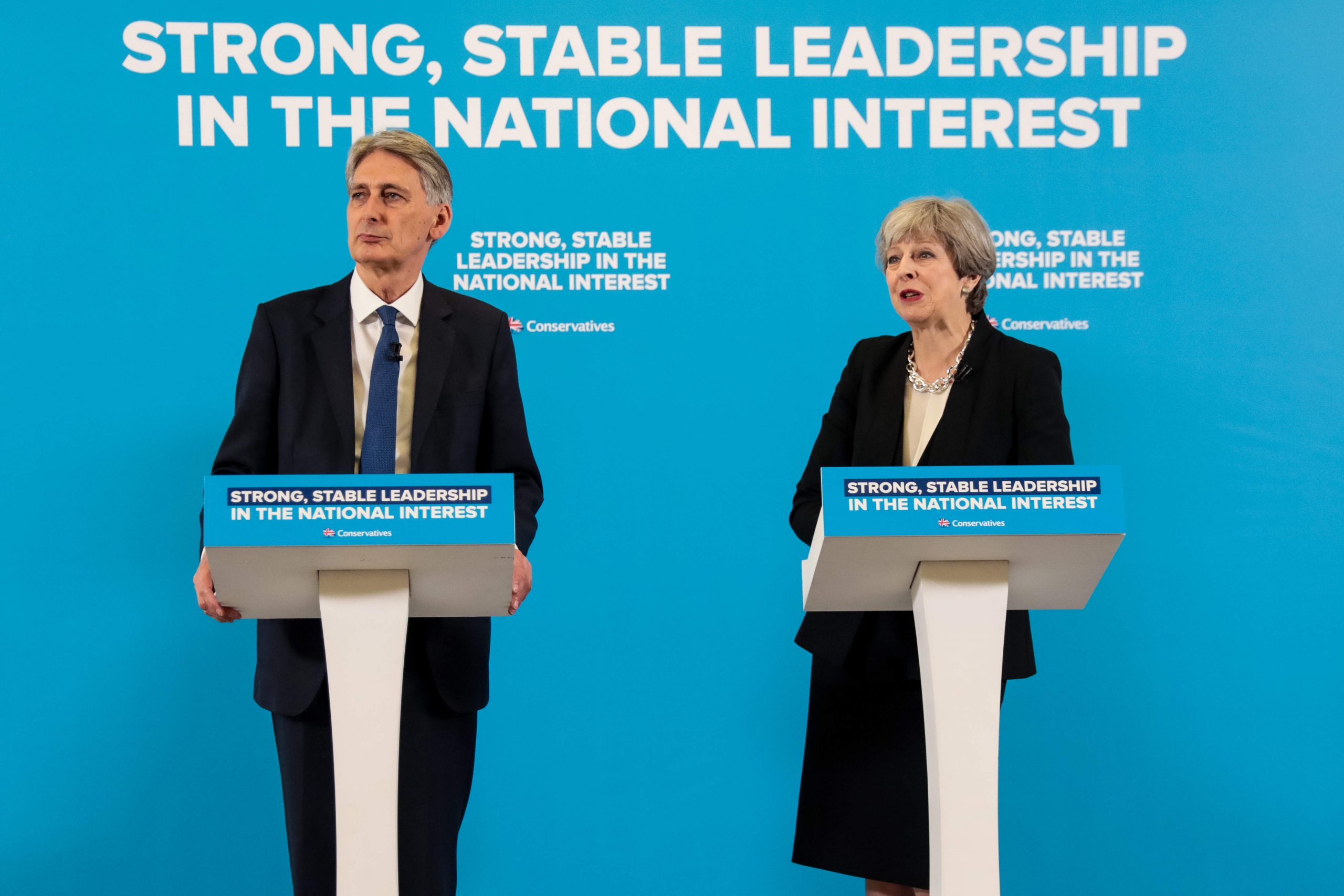
The Conservative Party is a lot like Facebook: ever-present, essentially uncool, and blue. And, like Facebook, it owes much of its continuing vitality to its ruthlessness in buying up or simply copying its most dangerous rivals. But the difficulty is that Conservative MPs can’t agree on what it is that makes Jeremy Corbyn dangerous: his luck or his judgement.
Those who favour luck point to Theresa May’s maladroit campaign. Its flaws have been well-aired, but anyone hoping for a repeat listening has only to give the average Conservative politician a gentle nudge. For supporters of David Cameron, the problem arose from a deliberate attempt to move away from the Cameroon playbook. The party offended elderly voters and alienated the socially liberal. In May’s haste to take credit for the expected election victory she all but banished Philip Hammond, the Chancellor, from the campaign trail.
And while Labour might have pledged to maintain Trident after the election, the contest was defined by unilateral disarmament of another kind: the Conservative Party’s argument for austerity, the drumbeat to its successes in 2010 and 2015.
Lingering irritation at the conduct of the campaign from both Cameron and his friends is one reason why May’s phone call to her predecessor, seeking his support in striking a deal with the Democratic Unionist Party, made its way to the Times on 3 July. For the Tory right, the problem, as strategist Lynton Crosby is said to have told friends, was that “a Conservative manifesto should have some Conservative policies”. May’s borrowing of Ed Miliband’s key themes meant anyone seeking authentic conservatism stayed at home. That she also aped Miliband’s robotic appearances on the campaign trail only compounded the problem.
What unites the right, regardless of their politics, is the belief that normal service will resume once a new leader – provided it is the right leader – is in place. Corbyn got lucky once – now they must make sure he doesn’t get lucky a second time. It was partly that way of thinking that Damian Green, May’s closest political ally and now her de facto deputy, set himself against with his speech to the liberal Conservative think tank Bright Blue. He said the party must “think hard, work hard and change hard” to win back its majority. The speech was partially, of course, about boosting the Prime Minister’s hopes of staying. If the party’s problem is bigger than its leader, why shouldn’t she hang on, at least for a while longer?
However, it is not only Green who believes that Corbyn’s success owed itself to more than May’s gaffe-prone bid for a bigger parliamentary majority – though the campaign is still a subject of considerable rancour among that group. (It is next-to-impossible to find anyone willing to defend the conduct of the Conservative campaign, though there is still a determined effort among the key participants to pin the blame on someone else.) In cabinet, the group is represented by Education Secretary Justine Greening, who came within 1,554 votes of losing her Putney seat; Jeremy Hunt, the Health Secretary; Michael Fallon, the Defence Secretary; and Chris Grayling, the Transport Secretary. They see the election result as the consequence of “austerity fatigue” – a waning appetite for continuing cuts after seven years of fiscal restraint.
Their biggest demand is an end to the public sector pay cap, which has held rises at below inflation since the Conservatives took office. They are opposed by a smaller group of ministers who believe that the Conservatives must re-establish control of the economic narrative by arguing for continuing financial restraint against a spendthrift Labour Party.
It was in support of that smaller group that Hammond’s 3 July speech to the Confederation of British Industry was delivered. Hammond is politically lonely because he is the cabinet’s only real Thatcherite: a supporter of both fiscal retrenchment and the European single market, both hallmarks of Thatcher in her time in office, but the latter of which has been abandoned by many of her latter-day devotees.
In the cabinet, Hammond’s hawkishness on public spending sets him apart from his pro-European allies, but his favourable view of Europe means that the cabinet’s deficit watchers will only ever regard him as an ally of convenience.
His bigger problem isn’t politics, however, but maths. The appetite among nervous backbenchers for bigger cuts was already at a low ebb when the election was called. Now, with their numbers reduced, the caucus for a greater pace of deficit reduction is lower still. That the price of staying in office is a £1.5bn deal with the DUP only compounds the problem. The DUP’s bounty is peanuts next to the £773bn that the British government spent last year across the UK, but it hands Labour a powerful political weapon. Halting school funding cuts – one deal with the DUP. An end to the public sector pay freeze – four deals with the DUP.
Tory MPs were skittish about further cuts, but the prospect of voting for more pain for their constituents while sending more money to Northern Ireland has only deepened the sense that a gentler pace of deficit reduction will be needed by the autumn. The row will then turn to how to pay for this – while Conservative MPs have come around to higher spending, there is not, as yet, a turn to greater affection for higher taxes.
However, the long Tory history of successful regeneration is why optimistic Conservative MPs are in favour of at least one type of borrowing: from their opponents, as they have done throughout their history. But while they cannot agree on what to borrow, let alone who to lead them, optimism will remain a minority position in the Tory tribe.
This article appears in the 05 Jul 2017 issue of the New Statesman, Corbyn mania





